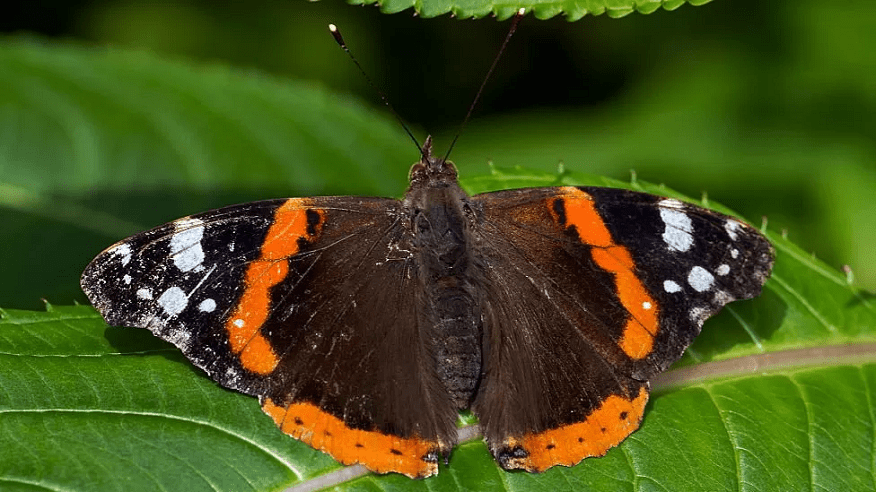Climate change is seeing a species of migratory butterfly stay in the UK over the winter instead of returning to Europe and Africa, experts say.
A charity’s butterfly count in July recorded a four-fold increase in sightings of the majestic red admiral – continuing a long-term trend.
Sightings rose by more than 175,000 compared to the same period last year.
Butterfly Conservation said “there can be no doubt climate change is the driver” behind the increase.
The red admiral is a common sight in British and Irish gardens with its distinctive dark brown body, red stripes and white patches, but is actually a migrant species from continental Europe and North Africa. It migrates north to the UK each spring and summer, and the females lay eggs.
The experts say it appears many more are staying in southern England over the winter months, leading to more sightings this year.
The Big Butterfly Count found between 14 July and 2 August this year there was a 400% increase in sightings of red admirals.
The count continues until 6 August and scientists at Butterfly Conservation are looking to see how many more red admirals are recorded, and how they are dispersed around the UK.
In total the count – which involves butterfly watchers reporting online which species they see – recorded 177,000 sightings of red admirals so far.
Butterfly Conservation, which works to reverse the decline of the most threatened species, said with global temperatures rising the need for the red admiral to return to continental Europe and Africa is reducing, and it is possible a greater number will now be spending winter in the UK.
Dr Zoe Randle, senior surveys officer at the charity, said: “We’ve been surprised to see the red admiral taking the lead; however, with the increased frequency of warm weather, the UK may well become a permanent home for this species…
“With climate change here to stay, we need people to take part more than ever before and help us understand how extreme weather is affecting our butterflies.”
Overall more than one million butterfly sightings have been recorded in the Big Butterfly Count so far this year by nearly 65,000 participants.

